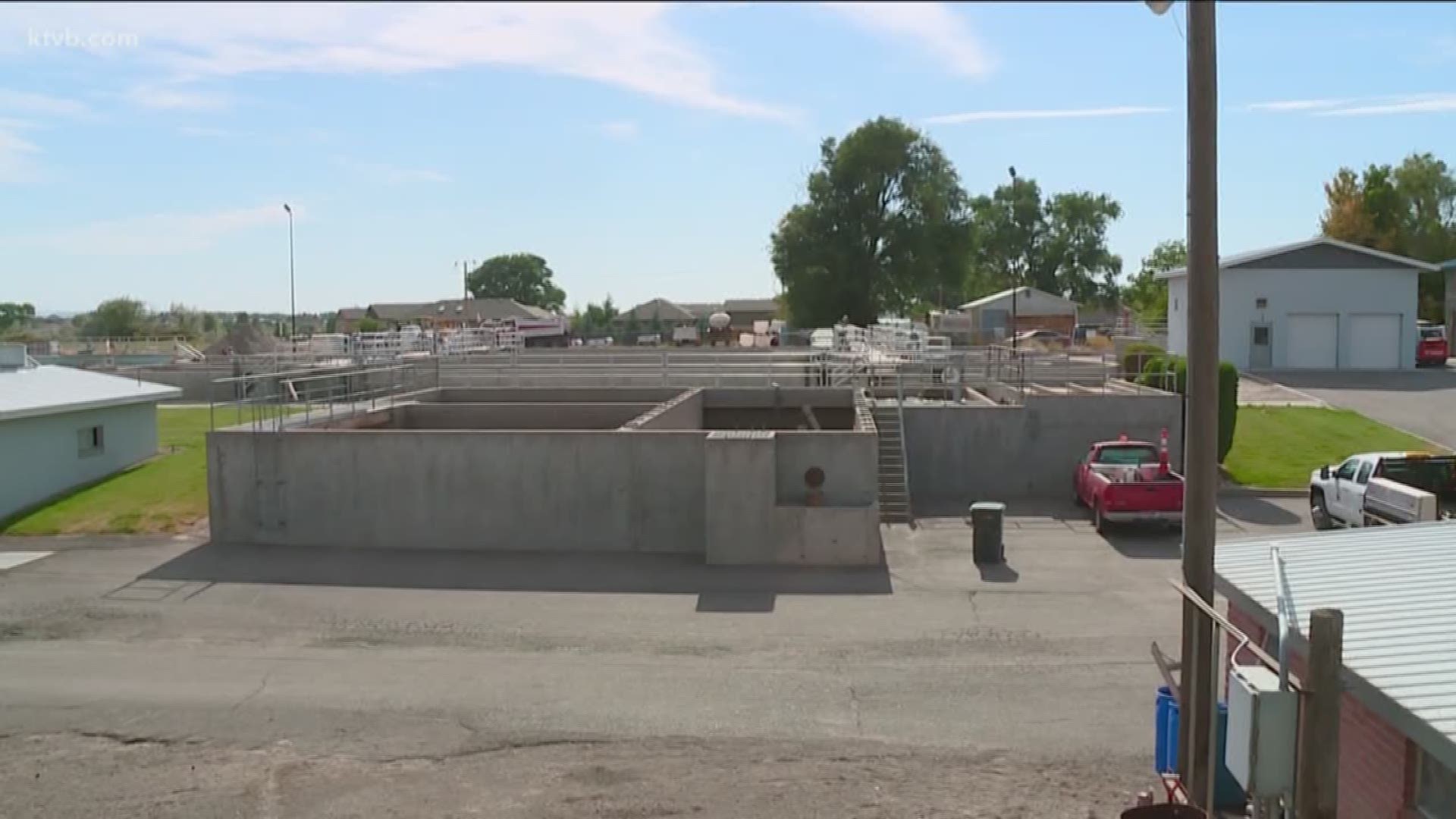HEYBURN, Idaho -- The Environmental Protection Agency (EPA) is forcing a small Idaho city to upgrade their wastewater treatment plant.
The City of Heyburn's plant has nearly 600 violations, most of which are due high levels of phosphorous being discharged. Parts of the system are outdated and need improvements, so the city has to issue a multi-million dollar bond - and take action soon.
"We exceeded our limits on TPPs and phosphates, I believe," Heyburn City Administrator Tony Morley told KTVB. "We are just slightly over the allowed limit but it counts as a violation and violations are violations."
The wastewater plant has been overwhelmed for years, struggling to keep up with the amount of material coming into the system.
"Heyburn is outgrowing the infrastructure," Jack Gilson, Heyburn wastewater treatment plant operator, said.
"Our plant is operating pretty close to capacity most of the time. And if you have any bumps - upward spikes or anything like that - come through the system it is just not able to capture everything before the discharge," Morley said.
City officials say the wastewater treatment plant has been getting hit with recurring violations since 2014. It was inundated and infiltrated during extreme weather and flooding in 2016 and 2017; that compounded with growth led to 596 violations with the Environmental Protection Agency.
"We just need to expand and give ourselves a little more capability to continue to treat the growing population," Gilson said.
"We have not done much for growth in infrastructure for quite a while. And so really that's something that needs to be done on a continual basis," Morley added. "Obviously we are kind of in a little trouble spot where we are at and in order to grow we are going to have to do something. And so when you bundle all of that together we just can’t keep operating where we are at. We’ve got to do something."
Now, it's all coming to a head: the city is under a consent order by the EPA, forcing them to bring the plant into compliance or face fines of more than $53,000 per day.
"You don't just cure these types of things in a month or two. It takes several months or a year, and so it could easily bankrupt a city of this size," Morley told KTVB.
Morley says they have to make upgrades or buy new equipment for solids handling, disinfection and clarifying. The consent order says the city has to put in a screw press for solids handling - a method to take the solids out of the system and remove them quicker than they are now.
They also must upgrade their ultraviolet light system, which is a major upgrade to the disinfection step of the process. The order says they must add an additional clarifier, which separates the solids and liquids so they can pull the liquid off the top and return the solids back to the front end of the plant, Gilson says.
"We are getting a back-up causing too many solids and we are getting that bottleneck," Gilson said. "When you get too many solids in the plant you end up with what’s old sludge and that is organics that the bugs can no longer eat. So if you recycle those and send those to the front too much it actually hurts the environment of the bugs and it lowers their effectiveness of what they can treat."
"It is really the loading on the plants," Gilson added. "The plant was designed for a one mil capacity and some portions of the year we're starting to reach that, and last year we actually exceeded that."
In total, Morley says improvements will cost about $8 to $8.5 million. Rather than raising tax rates exponentially all at once to pay that immediately, the city is looking at passing a revenue rate bond.
"For a little town of 3,300 people, that is a lot of money," Morley told KTVB.
The city can either ask taxpayers to pass a bond in an election or go through a judicial confirmation, where a judge issues an order for a bond without the people's vote.
"The problem with that is the citizens didn't get the chance to voice their concerns or their opinion on that. If you go with a rate revenue bond then the citizens get a chance to vote and say yes or no. But the problem is if they say no, the EPA says we still have to do it or we will be fined $53,000 a day," Morley said.
Moving forward, the City Council will ultimately make a decision on which option is best. They are holding a regular meeting on Wednesday at 7 p.m. and could make a decision. The council will hear a presentation by Zion's Bank and a bond counselor that covers details and best options.
Over the last two to three years, Heyburn has spent hundreds of thousands of dollars - comprised of their own money and grant money from the Department of Environmental Quality - on studies conducted by engineering firms and other experts to grasp the problem and what needs to be done to fix it.
When KTVB asked Morley how the city could have avoided this, Morley said: "A lot of times these things don't manifest themselves until you get there."
"Not only the EPA, but nobody wants dirty water. The city does not want dirty water. We will find some way to take care of the problem," Morley added.
But he says the first phase of improvements has to be done by July 2020 and the next by 2022.
"In the wastewater world with engineering and construction, that is a very short timeline," Morley said.

